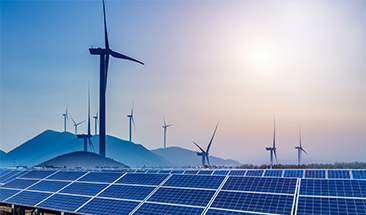Lawmakers in the European Parliament announced the adoption of its position on a new law aimed at cutting methane emissions, with a focus on sectors including oil, fossil gas and coal, as well as bio-methane, in a 499-73 vote.
The new law would be the first EU-wide legislation mandating methane emissions reductions.
Rapid reduction in methane emissions is seen as one of the most effective near-term actions that can be taken in order to help achieve the global climate goal to limit warming to 1.5°C. Methane, emitted from activities such as agriculture, fossil fuel production and transport, coal mining and landfills, is an extremely potent greenhouse gas, with as much as 80x the warming power of CO2. Given its much shorter lifetime in the atmosphere (10-12 years, vs 50-100 years for CO2), near-term reductions in methane emissions can have a meaningful climate impact over the next few years.
The new law would form part of the European Commission’s “Fit for 55” roadmap – the EU’s proposed strategy to cut greenhouse gas (GHG) emissions by 55% by 2030, compared to 1990 levels. In December 2021, the Commission announced a series of legislative proposals to support the strategy, including requirements for the oil, gas and coal sectors to measure, report and verify methane emissions, along with rules to detect and repair methane leaks, and limit venting and flaring, as well as proposed monitoring tools to ensure transparency on methane emissions from imported oil, gas and coal.
The EU is also a founding signatory to the Global Methane Pledge, aimed at reducing global methane emissions by at least 30% by 2030, compared to 2020 levels.
In addition to urging the Commission to propose binding 2030 EU-wide methane emissions reduction targets and for member states to set national reduction targets, Parliament’s position also takes a stronger stance than the Commission’s proposal on methane leak detection and repair, including more frequent leak and detection surveys and more stringent repair obligations.
The proposed rules also include bans on venting and flaring methane from drainage stations by 2025 and from ventilation shafts by 2027. Additionally, Parliament’s position includes a requirement for importers of coal, oil and gas to demonstrate that their imported fossil energy meets the regulation’s requirements, with exemptions for imports from countries with similar rules.
The position adopted will guide Parliament’s negotiations with the EU Council on the final text of the new legislation.
About the Authors

Associate Director, Investment Banking
Prachurjya has over 16 years of experience in investment banking with Acuity Knowledge Partners. At Acuity, he has led sector and product-specialist pilot teams across Capital Markets, ESG, Debt Advisory, Loan Syndications, Metals & Mining and Real Estate. He has been actively involved in setting up and on-boarding new ESG Advisory, ESG DCM and Sustainable Finance teams for various bulge bracket investment banks. Within DCM and Rating Advisory, he has been instrumental in helping the clients achieve over 30% in annual savings on both regular and adhoc tasks through standardization of the outputs and deployment of our proprietary BEAT tools.

Delivery Manager, Investment Banking
Puja has 6 years of extensive experience in ESG, Climate Change & Sustainability and she is supervising the ESG team at Acuity. She also has diverse experience in conducting ESIA, EHS compliance audits, ESG Risks and Controls, EHS & ESG Due Diligence assessments. Prior to joining Acuity, she was working with companies like KPMG Global Services, EY India and ERM India. She has expertise in provisioning extensive research requirements for clients through preparation of Peer Benchmarking, Target Compilation, Sustainability report, Sustainable Finance Updates and Sectoral ESG Thematic Detailing Engagement.
Connect with the experts at contact@acuitykp.com


